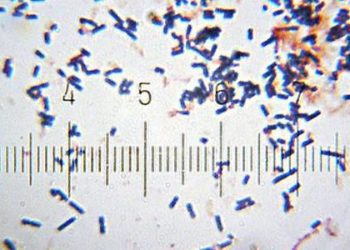Antenatal steroids improved outcomes in a dose-dependent manner in extremely premature infants
1. Based on this prospective cohort study, use of antenatal steroids (ANS) was linked to improved mortality and neurologic outcomes, and lower rates of necrotizing enterocolitis and bronchopulmonary dysplasia in extremely premature infants.
2. Outcomes demonstrated a dose-response relationship with a complete course of ANS linked to better outcomes than partial treatment.
Evidence Rating Level: 2 (Good)
Study Rundown: Antenatal steroids are routinely given to premature infants to promote maturation and improve respiratory and neurologic outcomes. Previous studies evaluating the effectiveness of ANS have provided mixed results in terms of overall benefit for neurologic outcomes. However, previous methodologies have differed in their inclusion of partial treatment in either treatment or no treatment comparisons. This current study sought to evaluate the long-term neurologic and mortality outcomes based on no, partial, or complete ANS therapy.
The study followed extremely premature infants up to 22 months and compared outcomes based on whether they had received no, partial, or complete ANS. Premature infants who received ANS had lower mortality rates, with complete therapy having the lowest rate of mortality. ANS therapy was also associated with lower rates of intracranial hemorrhage, necrotizing enterocolitis, and bronchopulmonary dysplasia. The strengths of this study included the size of the cohort and focus on a particular population (extremely premature). The weakness included the observational design and the presence of substantial differences between cohorts in important factors such as gestational age, and socioeconomic status, which may have confounded the results
Click to read the study, published today in JAMA Pediatrics
Relevant Reading: Neurodevelopmental Outcome After a Single Course of Antenatal Steroids in Children Born Preterm: A Systematic Review and Meta-analysis
In-Depth [prospective cohort]: This study is an observational cohort study of infants enrolled in the National Institute of Child Health and Human Development (NICHD) Neonatal Research Network (NRN) database. They were recruited from 2006 to 2011. Infants were extremely premature (401-1000 g, gestational age 22-27 weeks), and were included if follow up data was obtained up to 18-22 months corrected age. Infants were excluded if they died within 12 hours without aggressive neonatal care. A complete course of ANS was considered two doses of betamethasone or four doses of dexamethasone; partial courses were any number of doses one or more that did not meet criteria for complete course. Outcomes included mortality, necrotizing enterocolitis, pulmonary bronchodysplasia, or neurodevelopmental impairment (NDI) defined as any of: moderate to severe cerebral palsy, score of 85 or less on Bayley Scales of Infant and Toddler Development III, blindness/acuity less than 20/200, or deafness.
Of the 3892 infants included in the study, the rates of mortality decreased with increased ANS therapy: no ANS (43.1%), partial (29.6%), and complete ANS (25.2%). NDI was lower for complete ANS compared to no ANS (aOR 0.70; 95%CI 0.55 to 0.89), and partial ANS compared to no ANS (aOR 0.80; 95%CI 0.68 to 0.95). The complete ANS group also had lower rates of necrotizing enterocolitis or death (aOR 0.75; 95%CI 0.63 to 0.89), and bronchopulmonary dysplasia or death (aOR 0.79; 95%CI 0.65 to 0.96) compared to no ANS with the trend towards improved outcomes compared to partial ANS not achieving statistical significance.
Image: PD
©2016 2 Minute Medicine, Inc. All rights reserved. No works may be reproduced without expressed written consent from 2 Minute Medicine, Inc. Inquire about licensing here. No article should be construed as medical advice and is not intended as such by the authors or by 2 Minute Medicine, Inc.









